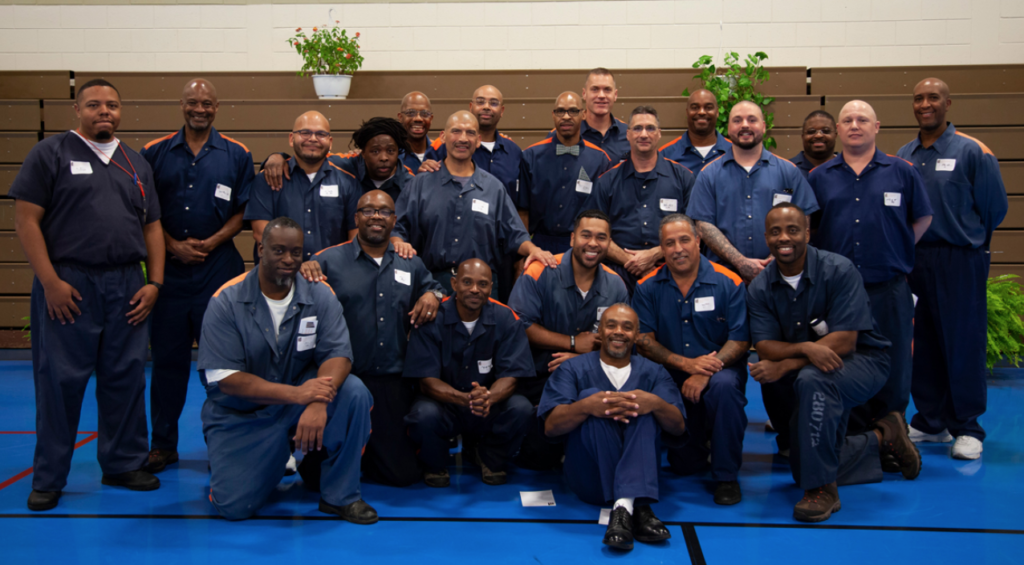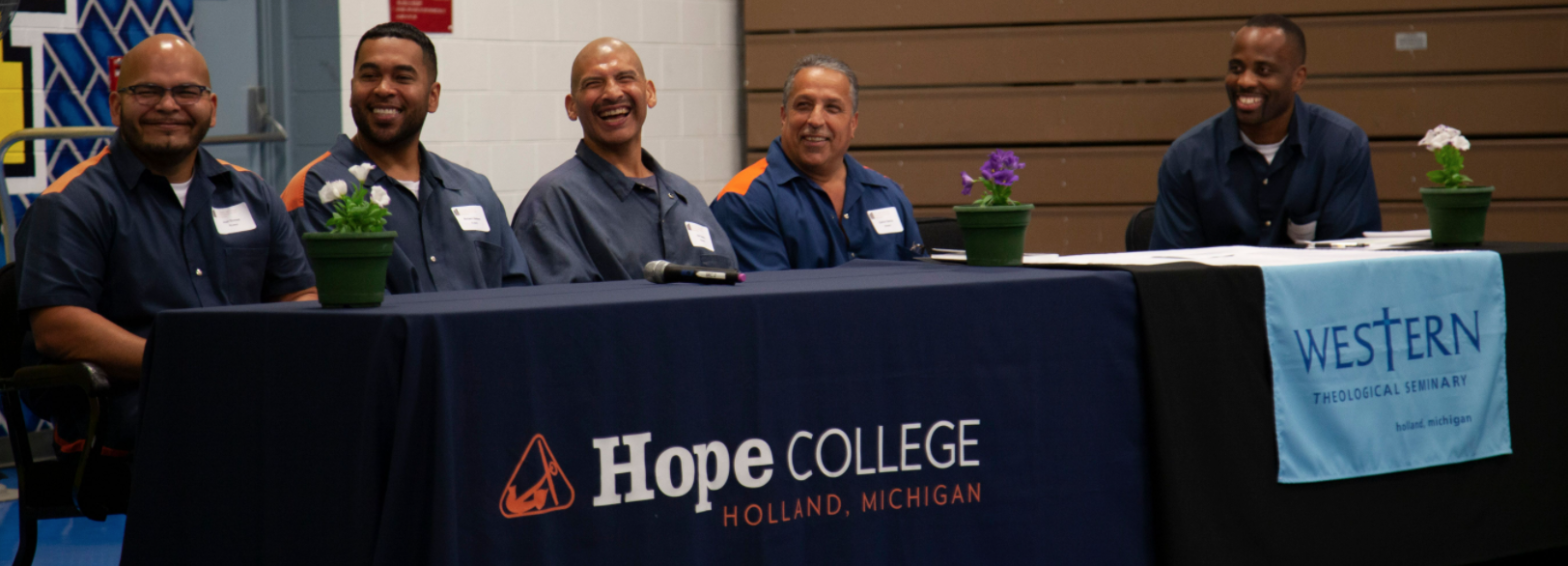It’s been a year since COVID forced us to end face-to-face instruction in Curtis Gruenler and Dennis Feaster’s Life Together: An Interdisciplinary Study of Community and Friendship course at Muskegon Correctional Facility. Since that time so much has happened, but quite a bit hasn’t happened as well. Many have asked us “What’s the latest with the prison program?” Here’s a quick summary:
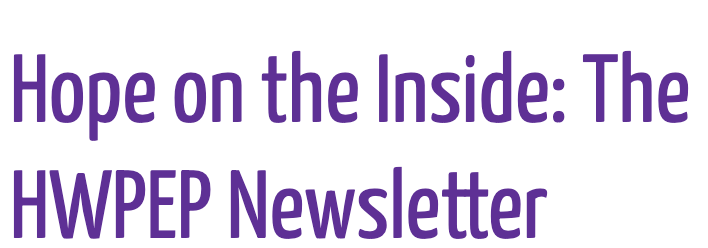
- We have worked to maintain a learning community among the first cohort of Hope-Western Prison Education Program students:
- A two-page newsletter – Hope on the Inside – is sent to the students every two weeks. News of the college and seminary, reflections on their readings, and writing intended to help advance their spiritual formation are common elements.
- Curtis and Dennis completed the last half of their course through correspondence. We delivered books, articles, and assignments to the Warden. His staff distributed the materials to the students. We returned a couple of months later to collect their papers. Curtis and Dennis read and marked the papers, which we returned to the Warden for distribution back to the students.
- A second correspondence course – Faith, Leadership, and Service – was delivered to the prison around Thanksgiving. The papers from that course have been collected and are being graded at this time by a team of Hope and WTS students, along with David Stubbs, Pam Bush, and Richard Ray.
- A third correspondence course – a book study – is in the planning stage.
- We have initiated planning for a return to face-to-face teaching – hopefully by Fall 2021. We hope to initiate the first credit-bearing courses of the curriculum approved by Hope’s Academic Affairs Board in April 2019 at that time. There are many moving parts to be able to get back into the prison as COVID is slowly beaten back.
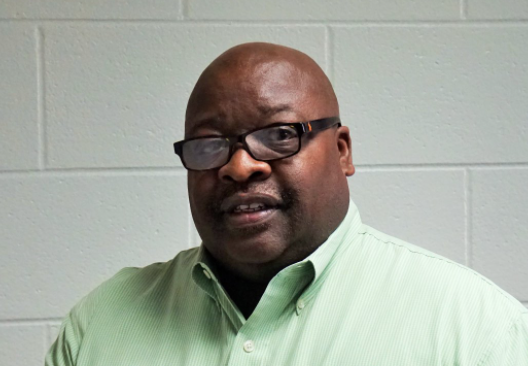
- We began working with a new warden. HWPEP’s founding warden, Sherry Burt, retired on January 1. She was succeeded by her deputy, Darrell Steward. He is a big supporter of HWPEP, and we look forward to working with him.
- The Congress voted to reinstate the eligibility of incarcerated students for Federal Pell Grants. This has been a big, big battle since mid-1990s. It will be a huge thing for our HWPEP students.
- We continue to be guided and advised by the HWPEP Steering Committee. And we have recruited a group of wonderful, wise, connected, and generous supporters to serve on the HWPEP’s Circle of Advisors.
- We’ve deepened our understanding of the national state of higher education in prison by attending (virtually) the National Conference on Higher Education in Prison. It was gratifying to learn that the steps being taken during COVID by the nation’s flagship college-in-prison programs are the same ones we’ve adopted.
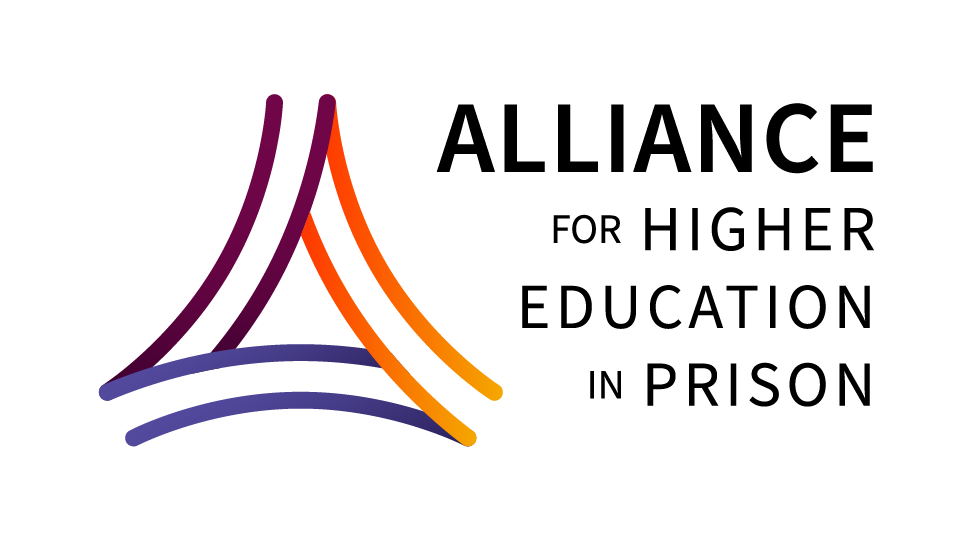
Thanks for your continuing interest in HWPEP and our Hope College students living and learning at Muskegon Correctional Facility. To stay up to date with what’s what with HWPEP and higher education in prison generally, please subscribe to our monthly newsletter.
